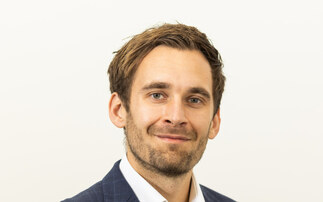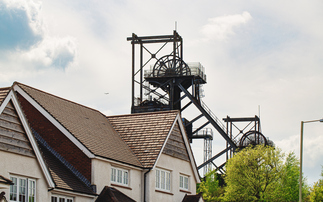CEO for Renewable Energy Systems (RES) in Northern Europe reflects on the events, issues, and trends that have shaped her career
Name: Rachel Ruffle
Job Title: CEO Northern Europe, RES
What was your first job?
A research Engineer for BT at its research base in Suffolk
What was your first job in sustainability?
It was when I joined RES as a technical analyst in 1994.
Was there a single moment that made you want to work in the sustainability field?
I was brought up close to nature in the English countryside, and always felt that as humans we risked destroying our planet. In my mid 20s I was walking on the South Downs with my boyfriend (who has since become my husband). We were discussing the problems of pollution and peak oil and gas when we came across an old windmill.
I remember we talked about the potential of harnessing wind energy on a large scale - which in the early 1990s seemed like an impossible dream. I couldn't see a reason why wind energy wasn't contributing more.
After that moment I knew I wanted a role in wind power - something where I could apply my technical skills gained from studying electrical engineering and analytical expertise gained from previous professional roles. I knew I wanted to do a job which would help create a sustainable future for our planet.
What is your proudest career achievement?
I am ridiculously proud of every operational wind, solar or storage plant I've been involved in developing. What makes me particularly pleased is that wind or solar are now the cheapest form of generation in every market and can be built subsidy-free.
We have recently transacted with Prime and Enlight on Björnberget a 372MW subsidy free wind farm in Sweden and will start construction early next year - this is truly a realisation of the seemingly impossible ambition and hope I had for the sector 25 years ago.
And what is your biggest career regret?
It's great to see how far the renewable industry has come and my regret is that we haven't gone fast enough to prevent impacts of climate change and reduced biodiversity. We still have every chance to build a cleaner, sustainable society particularly as it now makes economic as well as environmental sense.
However, there remain detractors and vested interests that will slow down or divert the transformation and I can only hope that the momentum will build and the damage to our planet and all species will not be irreversible.
What are your professional priorities for the year ahead?
I want to position RES to continue supporting an acceleration to zero carbon and address how we can best support mass electrification and more deployment of green hydrogen and flexible grids. These are areas that need to go hand in hand with increased buildout of renewable generation.
What is the best thing about your current role?
I love the international dimension of my job. Working in Germany and the Nordics, learning new markets and meeting new people is fantastic. I also enjoy spending time shaping longer term strategic projects and working collaboratively with competitors, clients, regulators, suppliers - all stakeholders in our market.
If you could give one piece of advice to someone starting out working in sustainability what would it be?
Choose an organisation with values that match your own and whose purpose is clear.
What is your biggest fear?
That the brakes on greenhouse gas emissions and the pivot of oil and gas majors to renewables isn't hard enough to prevent the further impacts of climate change.
If you had $100m to invest in one clean technology which would you choose?
As I'm involved with deploying larger sums professionally in wind solar and battery storage, I'll answer the question as if I had personal wealth of that scale. In that case I would choose electrification of household heating and transport.
If you could introduce one green policy which would you choose?
Removal of government (taxpayers) subsidies for the continued use of fossil fuels.
Do you think the world will meet the goals of the Paris Agreement?
Yes. We must be positive and build the momentum and exceed the goals of the Paris Agreement.
What would your green superpower be?
To convert every demand for fossil fuels into a demand for electricity or green hydrogen where electrification is not practical, with enough renewable capacity to exceed that demand and store green hydrogen for the calm, cloudy days.
Where would you like to be in 10 years' time?
With the electrification of transport and heat in the bag, addressing those hard to abate sectors and seeing the signs of nature recovering
What's your green guilty secret?
A year ago it would have been flying, now I think it's the Landrover we bought to access a property we're restoring in Cornwall. A friend recently quipped that it's a positive carbon offset to my Tesla!
How do you unwind after a long day helping to save the planet?
I play netball, love walking and reading novels.
RES Group is a partner of the BusinessGreen Leaders Awards 2020







